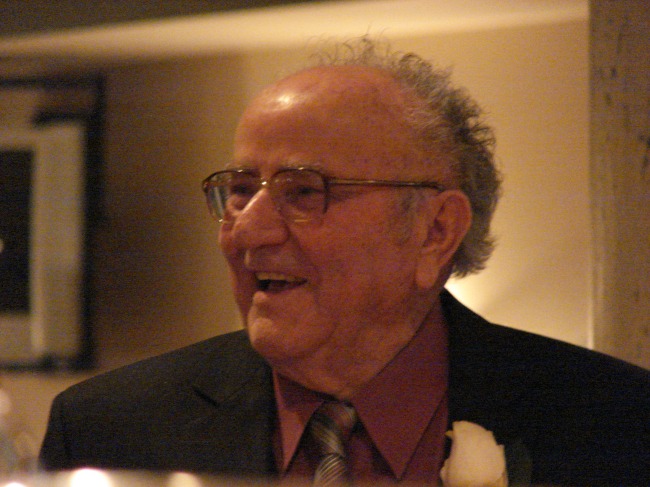 November
11
November
11
Amedeo Sorrentino, soldier
My grandfather, Amedeo Sorrentino, is 91 years-old and a veteran of the Second World War. He did not, though, fight for Canada. He will not be counted among those rightfully honoured at today’s Remembrance Day ceremonies. Nonno did not “fight for our freedom,” as we are so fond of saying every November. Still, I want to recognize him here.
During the War, Nonno was conscripted against his will into Mussolini’s army and sent off to fight for the fascists. My family tells a story of an Italian army recruiter who went door-to-door in the village to enlist all the young men. My grandfather did not want to fight, no one did, and hid in the house. When the recruiter came to the door Nonno’s mother told him there were no young men in the house. The soldier didn’t believe her. He stomped on her foot, crushing the bones beneath his boot, then entered the house and dragged out the men.
Now a soldier, Nonno witnessed his regiment destroyed by the British in northern Africa. He saw friends die, and was taken as a prisoner of war by to the UK where he suffered a broken back when Hitler bombed Scotland. He returned home after the war, crossing much of Italy on foot, and discovered his mother had been killed during the fighting. A grenade exploded in the village square. When Nonno tells this story he says the real war, the real tragedy, was at home, not on the battlefield.
I only visited Italy once, back in 1990, on a family trip. Nonno came along. Not far from his hometown there is a cemetery for Canadian soldiers who died fighting in Italy during the War. Nonno took my sisters and I to visit the graves. Officially, the men buried in that cemetery would have been considered my grandfather’s enemies. Nonno didn’t see them this way. By bringing us to the cemetery he was telling us, implicitly at least, that he considered these fallen men his comrades. Like his friends, they were young men who died too soon.


A truly touching story my friend. Thankyou.